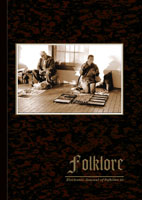Chinese Perspectivism: Perspectivist Cosmologies in Zhuangzi and Journey to the West
Chinese Perspectivism: Perspectivist Cosmologies in Zhuangzi and Journey to the West
Author(s): Erki LindSubject(s): Customs / Folklore
Published by: Eesti Kirjandusmuuseum
Keywords: Amazonian perspectivism; Chinese literature; Chinese philosophy; cosmology; Daoism; Journey to the West; perspectivism: Zhuangzi
Summary/Abstract: Perspectivism as a cosmology, according to which all beings perceive themselves as humans, has been discussed mainly in connection with the Amazonian region, for the term perspectivism stems from Eduardo Viveiros de Castro, who applied it to the indigenous worldview of that particular region. To a lesser extent, it has also been studied in North Asia and some other hunter-gatherer societies. In this article I wish to demonstrate that perspectivism may be more widespread than previously thought, and its occurrence is not necessarily limited to hunter-gatherer cultures. Perspectivism can also be found in pre-modern China, which can be seen from such well-known texts as Zhuangzi (4th–3rd century BCE) and Journey to the West (16th century). The connecting link that makes the occurrence of perspectivism possible both in South America and East Asia is probably shamanism, which is present in both of these regions. It is characteristic of Chinese perspectivism that the multiple perspectives are not equal, but there is one proper perspective that is at the same time also the moral perspective. Chinese cosmology can contribute to the understanding of American perspectivism with its concept of cosmological relations, which fits the model of perspectivism.
Journal: Folklore: Electronic Journal of Folklore
- Issue Year: 2014
- Issue No: 59
- Page Range: 145-164
- Page Count: 20

